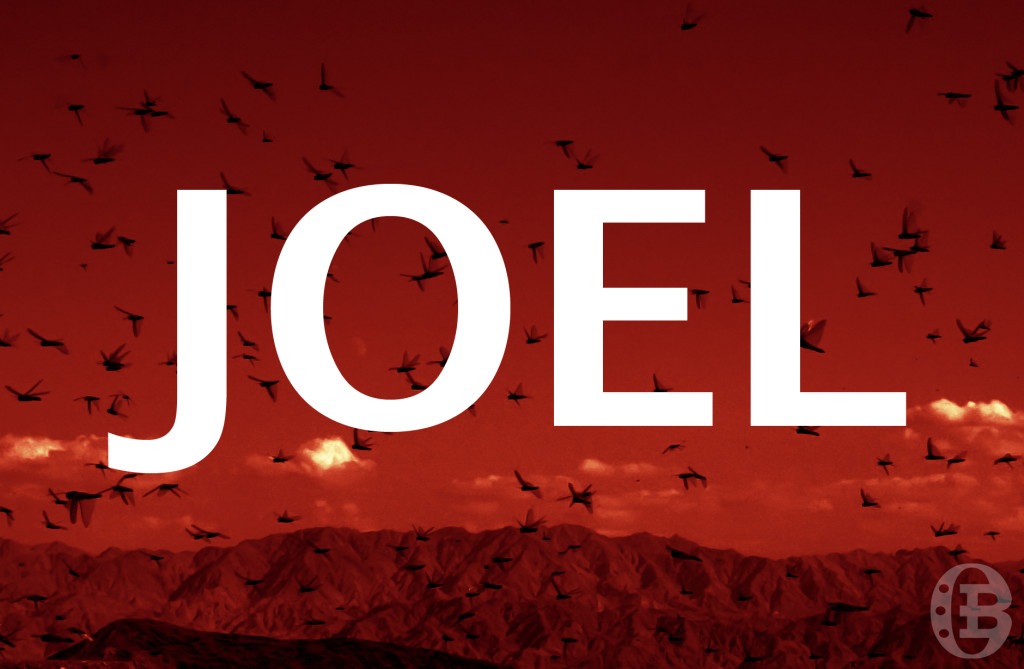 What is Joel about?
What is Joel about?
Locusts. Locusts everywhere.
A devastating swarm had come to Judah, the Southern Kingdom. This was no small infestation; the people had never seen anything like it:
“What the gnawing locust has left, the swarming locust has eaten;
And what the swarming locust has left, the creeping locust has eaten;
And what the creeping locust has left, the stripping locust has eaten.” (Joe 1:4)
The crops were gone. The people were hungry. The cattle were hungry. What was happening—and why?
The day of the Lord was upon them. When God was delivering Israel from slavery in Egypt, He sent a plague of locusts on the Egyptians’ crops. Now, hundreds of years later, He was judging His people with the same kind of plague for straying from Him.
But God also sends His prophet: Joel.
Joel explains to the people what the Lord wants from them: repentance. The Lord would soon have His day, both with Judah and the whole world. Joel’s message has two strong points:
- God is judging Judah, but He will bless and restore them again when they repent.
- God will judge all the nations on Judah’s behalf.
God disciplines His people, but He also defends them. Joel says that although Judah is under God’s wrath right now, in the future holds many exciting things for the people of God:
- The Lord will pour out His Spirit on all mankind.
- Whoever calls on the name of the Lord will be delivered.
- The Lord will avenge Judah of her enemies.
- Judah will again become a land of plenty.
Joel’s message is stern for the disobedient, but it also highlights God’s love and desire to be with His people. Rather than let them starve after sending the locusts, God sends Joel to direct their hearts back to Him.
Theme verse of Joel
“Yet even now,” declares the LORD,
Return to Me with all your heart,
And with fasting, weeping and mourning;
And rend your heart and not your garments.”
Now return to the LORD your God,
For He is gracious and compassionate,
Slow to anger, abounding in lovingkindness
And relenting of evil. (Joe 2:12–13)
Joel’s role in the Bible
Joel is the second minor prophet, who ministered to the Southern Kingdom of Judah. We don’t know much about him, and we don’t know much about how his message was received.
But we do know how some of the early Christians interpreted a few of Joel’s lines. In the book of Acts, the Holy Spirit comes upon the apostles and they began speaking in tongues (on the day of Pentecost ). Peter explains that this is what Joel prophesied about in Joel 3:28–32.
Of all the Old Testament books, Joel has the highest concentration of imperative verbs: 1.1% of the Hebrew words are commanding verbs.
Quick outline of Joel
- God judges Judah (Joel 1–2)
- God sends a plague of locusts on Judah (Joel 1:1–2:11)
- God calls Judah to repent (Joel 2:12–17)
- God promises to restore Judah from the plague (Joel 2:18–27)
- God judges the nations (Joel 2:28–3:21)
- God promises to pour out His Spirit on all mankind (Joel 2:28–29)
- God provides opportunity to repent before the day of the Lord (Joel 2:30–32)
- God judges the nations on behalf of Judah (Joel 3)
More pages related to Joel
- Amos (next book of the Bible)
- Hosea (previous)
- Acts (promise of the Holy Spirit fulfilled)
- Can you guess the bossiest book of the Bible?



